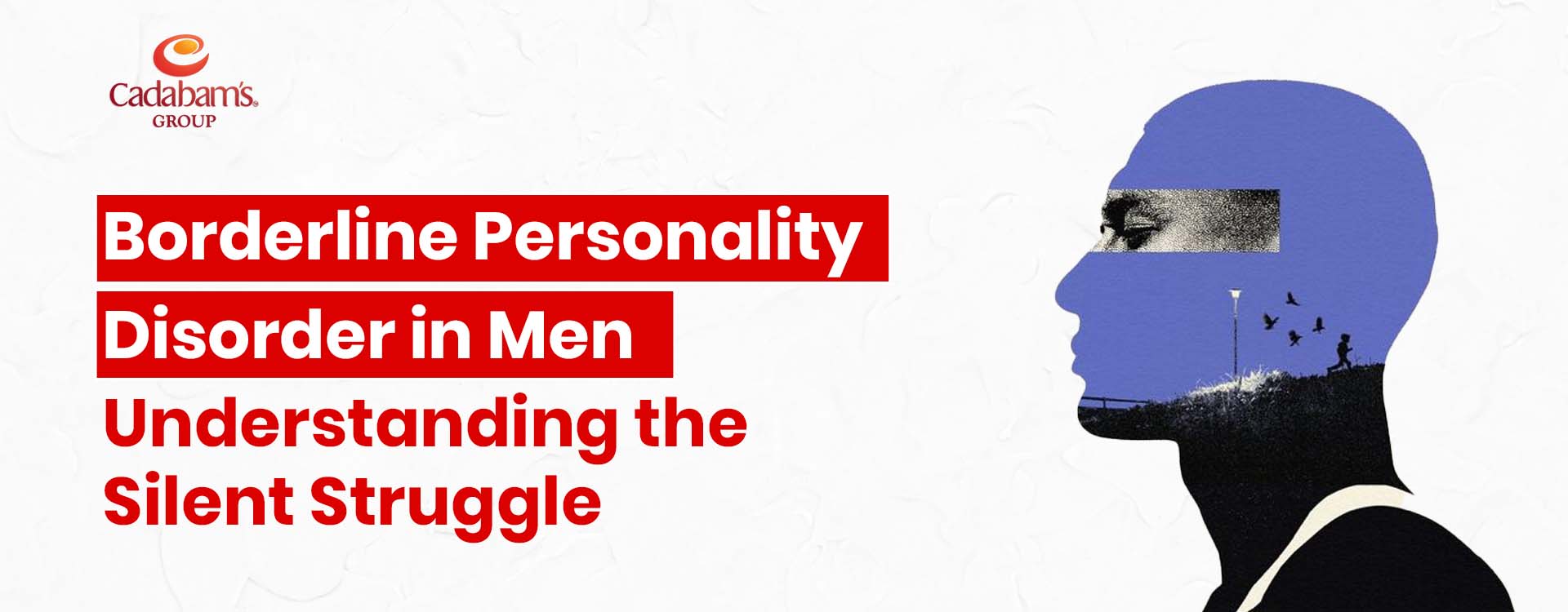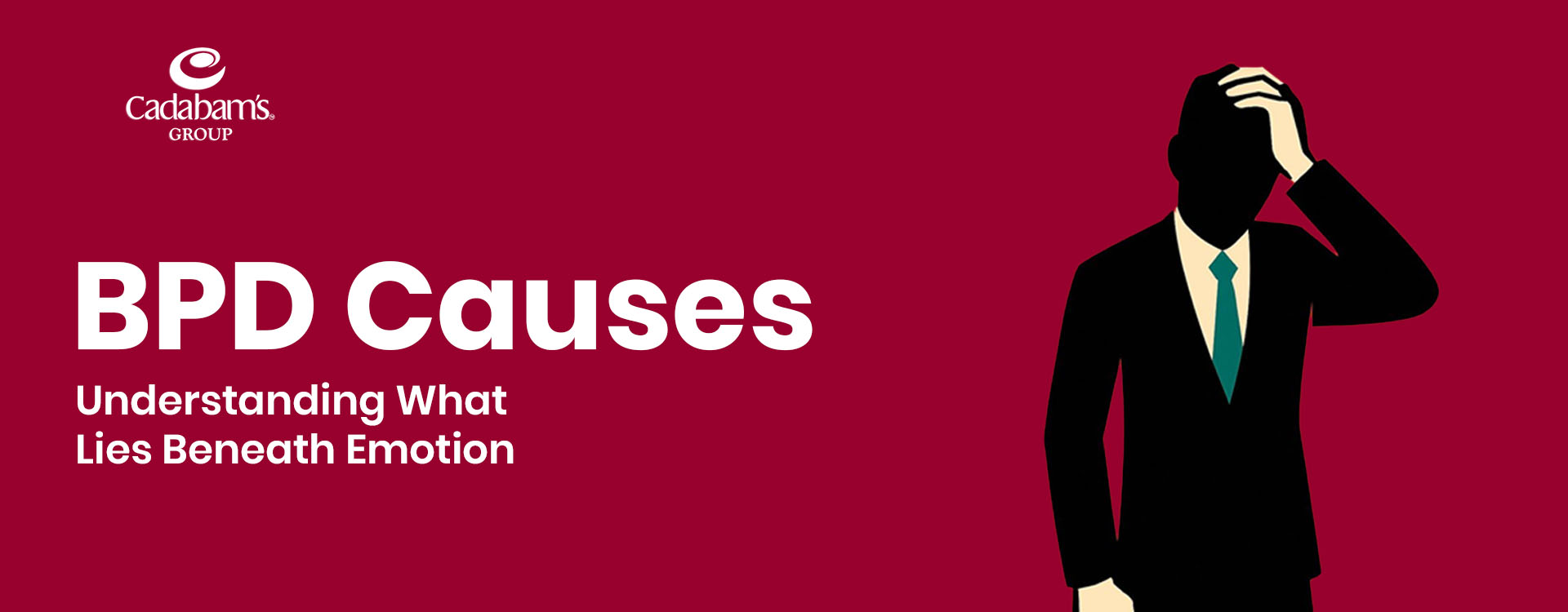Borderline personality disorder (BPD) is often misunderstood, especially in men. While emotional instability and relationship struggles are common symptoms, men with BPD may exhibit them differently. They might show intense anger, impulsivity, and substance abuse, leading to misdiagnosis and delayed help. This blog explores BPD in men, its symptoms, and how to get support.
What is Borderline Personality Disorder in Men?
Borderline personality disorder (BPD) in men can be misunderstood. Men with BPD often experience intense anger, impulsivity, and substance abuse, alongside the emotional instability and relationship struggles common with BPD. This can lead to misdiagnosis and difficulty reaching out for help.
What Should I Do Before Seeing the Doctor About Bipolar Disorder?
Before your appointment, track your mood swings. Note highs (increased energy, racing thoughts) and lows (sadness, fatigue) with dates and details. Jot down any sleep changes, reckless behavior, or activities you lose interest in. This helps your doctor understand your experience.
Causes of Borderline Personality Disorder?
The exact cause of borderline personality disorder (BPD) remains unknown, but experts believe it's likely a complex interplay of factors. Let's delve deeper into some of the key contributors:
Childhood abuse and trauma
A significant risk factor for BPD is experiencing childhood abuse or trauma. Up to 70% of people with BPD report past experiences of emotional, physical, or sexual abuse, neglect, or abandonment. These traumas can deeply influence brain development, altering emotional regulation, self-perception, and relationship skills.
Genetics
Research suggests a genetic predisposition to BPD. If you have a close family member, like a parent or sibling, with BPD, you're more likely to develop it yourself. However, it's important to remember that genetics aren't destiny. Environmental factors play a significant role, too.
Brain changes
Studies have identified potential differences in brain structure and function in people with BPD. Areas of the brain linked to emotion regulation, impulse control, and social interactions may demonstrate changes in activity or development. It's important to note that research is ongoing to determine whether these brain changes are a cause or consequence of BPD.
Key Symptoms of BPD in Men
Borderline personality disorder (BPD) can manifest differently in men compared to women. Here are some core symptoms to be aware of:
Emotional Instability and Anger Management
Men with BPD may experience intense mood swings, going from extreme happiness to anger or sadness very quickly. Difficulty controlling these emotions can lead to frequent outbursts, irritability, and challenges calming down after getting upset.
Fear of Abandonment and Relationship Challenges
A hallmark symptom of BPD is a deep fear of being alone or abandoned. In men, this might manifest as possessiveness, jealousy, or clingy behavior towards loved ones. However, the fear can also lead to pushing partners away unintentionally, creating a cycle of unstable relationships.
Impulsive Behaviors and Substance Abuse
Men with BPD may engage in impulsive behaviors as a way to cope with intense emotions or feelings of emptiness. This could include risky sexual behavior, substance abuse, gambling, reckless driving, or binge eating. Such impulsive behaviors can lead to negative outcomes in different areas of life.
The Impact of BPD on Men's Lives
Borderline personality disorder (BPD) can cast a long shadow over various aspects of a man's life. Here's a closer look at some key areas impacted:
Social and Professional Life
BPD's characteristic emotional instability and difficulty maintaining healthy relationships can take a toll on a man's social circle. Friendships and romantic relationships may become strained or even fractured due to intense emotions, fear of abandonment, or impulsive behaviors. The challenges with emotional regulation and impulse control can also hinder professional success. Difficulty managing anger or focusing on tasks can create tension in the workplace and limit career advancement.
Mental Health and Comorbid Conditions
Men with BPD are more likely to experience co-occurring mental health conditions. Anxiety and depression are frequent companions, further complicating emotional regulation. Substance abuse disorders are also more common in men with BPD and are often used as a coping mechanism for overwhelming emotions or feelings of emptiness. This creates a complex web of challenges that require comprehensive treatment.
Treatment and Management Strategies for BPD in Men
Borderline personality disorder (BPD) is treatable, and men with BPD can experience significant improvement in their quality of life with the right approach. Here are some key strategies that can be incorporated into a treatment plan:
Psychotherapy
This is the foundation of BPD treatment, and specific modalities have proven effective for men. Dialectical behavior therapy (DBT) equips individuals with skills in emotional regulation, distress tolerance, interpersonal effectiveness, and mindfulness. This structured therapy helps men with BPD learn to manage intense emotions, improve communication, and build healthier relationships. Cognitive behavioral therapy (CBT) can also be beneficial, focusing on identifying and changing negative thought patterns that contribute to emotional dysregulation and impulsive behaviors.
Medication and Its Role in Treatment
While medication isn't a cure for BPD, it can play a valuable role in managing co-occurring conditions that often accompany BPD in men. Medications like antidepressants can help alleviate symptoms of depression or anxiety, while mood stabilizers might be used to address emotional volatility. It's important to note that medication works best in conjunction with psychotherapy for a comprehensive treatment approach.
Lifestyle Changes and Support Systems
Developing healthy coping mechanisms is crucial for managing BPD. Learning relaxation techniques like deep breathing or mindfulness meditation can provide tools for managing intense emotions. Maintaining regular sleep schedules, healthy eating habits, and regular exercise can also significantly improve emotional well-being. Building a strong support system of friends, family members, or a therapist is essential. Sharing experiences and having a reliable network of people to turn to can provide invaluable support throughout the recovery journey.
How Can Family and Friends Support Men with BPD?
Living with someone with BPD can be challenging, but your support can make a significant difference. Here are some ways to help:
- Educate yourself about BPD: Understanding the condition can foster empathy and equip you to respond effectively to their struggles.
- Practice active listening: Validate their feelings without judgment and create a safe space for open communication.
- Set healthy boundaries: While being supportive, it's important to establish clear boundaries to protect your own well-being.
- Encourage professional help: Gently guide them towards seeking professional treatment, offering to accompany them to appointments.
- Focus on the positive: Acknowledge their strengths and celebrate their progress, no matter how small.
- Take care of yourself: Supporting someone with BPD requires emotional resilience. Prioritize self-care to avoid burnout.
BPD in Men Management with Cadabam's
Borderline personality disorder can be effectively managed, and Cadabam's is here to help. Our team of experienced professionals understands the unique challenges men with BPD face. We offer a variety of treatment options, including psychotherapy, medication management, and support groups, all tailored to address your specific needs. Don't hesitate to take the first step towards a healthier life. Contact Cadabam's today for a confidential consultation and explore how we can help you manage BPD in men and build a brighter future.
If you are searching for a solution to your problem, Cadabam’s Rehabilitation Centre can help you with its team of specialized experts. We have been helping thousands of people live healthier and happier lives for 30+ years. We leverage evidence-based approaches and holistic treatment methods to help individuals effectively manage BPD in men. Get in touch with us today. You can call us at 91 96111 94949.
FAQ
How do you know if a guy has borderline personality disorder?
It's important to see a mental health professional for diagnosis. However, signs might include intense mood swings, anger outbursts, fear of abandonment, impulsive behaviors, and unstable relationships.
How does a man with BPD act?
Men with BPD may experience intense anger or irritability, engage in risky behavior, or cling to loved ones excessively. They might struggle with emotional regulation and have difficulty maintaining stable relationships.
How to deal with a man with borderline personality disorder?
Educate yourself about BPD and practice active listening. Set healthy boundaries and encourage professional help. Focus on the positive and prioritize self-care to avoid burnout.
What are the symptoms of BPD in men?
Symptoms can include emotional instability, intense anger, fear of abandonment, impulsive behaviors like substance abuse, and difficulty maintaining healthy relationships. They might also experience anxiety, depression, or self-harm.
.webp)







